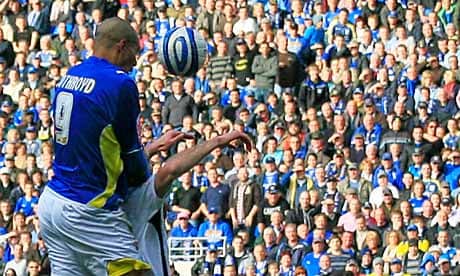Welsh clubs will break with more than a century of football tradition from next season and submit to cross-border regulation by the Football Association. Cardiff City and Swansea City have historically been dealt with by the FA of Wales, which has different regulations and disciplinary processes to its English counterpart. This is despite both clubs playing in English competitions.
A spokesman for the FAW told Digger: "All matters where the penalty can include sporting sanctions will be dealt with by the [English] FA, including doping and off-the-field issues." How this will take shape is currently the subject of ongoing discussion but Digger hears from another source that one possible outcome is for a representative of the FAW to sit in on any FA disciplinary panel involving a Welsh club.
The news of reform emerges after Digger exposed the FA's inability to sanction Cardiff City under third-party rules even if it is proved that the chairman of another football club has held a material influence over their transfer affairs. The Football League is currently investigating an arrangement Cardiff hold with an offshore entity, Player Finance Fund, that may be connected to the former Coventry City chairman, Ray Ranson. Cardiff deny the arrangement constituted third-party influence.
Situations vacant
Barnet take on Port Vale at Underhill on Saturday while Lincoln City host Aldershot. Though they take place at the foot of League Two, the results of those games could reverberate at the very top of the Football Association. Tony Kleanthous, Barnet's chairman and owner, has served on the FA board since 2009 but if his club fail to overhaul the two-point deficit Lincoln hold over them and are relegated he will be forced to step down. With David Sheepshanks having resigned as the Championship's representative on the board last month it will leave two vacancies for the Football League delegates.
At a time when the FA chairman is attempting to persuade the organisation's decision-makers to accept the introduction of two independent nonexecutive directors, by far the most sensible outcome would be to replace only one of Kleanthous or Sheepshanks. Then the Premier League and the grassroots "national game" could also sacrifice a representative each to even things up. Manchester United's FA board member, David Gill, has said he wants independents to be introduced and without the board growing in size. So he would presumably be willing to stand aside, provided the Premier League approved it. Yet even so obvious a reform seems an unachievable utopia in the FA's skewed structures. The FA's council will not decide on the nonexecutive directors until July, by which time most insiders expect Kleanthous and Sheepshanks to have been replaced. And they thought reforming the House of Lords was difficult.
The taxman cometh
The football creditors' rule could be overturned as soon as November after a high court hearing on Thursday into the Plymouth Argyle insolvency led to HM Revenue & Customs challenging it again. The controversial rule, which protects footballers and other clubs at the expense of other unsecured creditors, has long been a bugbear for the taxman.
HMRC has lost tens of millions of pounds in football insolvencies since losing its preferential-creditor status in 2003. But, whereas Sir George Anthony Mann announced as the judge in the Portsmouth insolvency case last August that he was not equipped to rule on the football creditors' rule without a separate case to examine it, Sir Guy Newey decided he would.
In the meantime there has been a football-governance inquiry by a parliamentary select committee at which even senior football figures such as Manchester United's chief executive, David Gill, have declared the rule indefensible. The new case is scheduled for 28 November – the privileged protections for millionaire footballers over insolvent clubs' local-community suppliers are not likely to survive.
Mourinho finds favour
One in three Manchester United fans want José Mourinho to take over Sir Alex Ferguson's place in the Old Trafford dugout when the Scot quits the club, according to a poll of 3,000 supporters by the website Greenandgold.tv. More than one in six would favour the Real Madrid coach's implacable Barcelona rival, Pep Guardiola.
And in such glamorous company it is refreshing that one of the English game's most successful honest toilers gets a look-in: one in eight picked Everton's David Moyes.
Follow Matt Scott on Twitter: @diggermattscott
